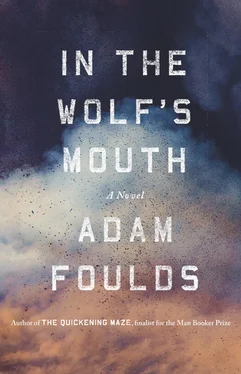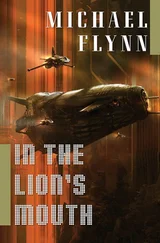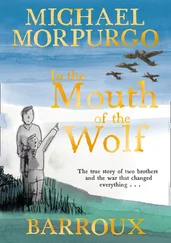Before Will knocked on Captain Draycott’s door, he could hear him at his activities on the other side, in particular the twanging sound of things thrown into his metal waste-paper basket. Will rapped hard, thinking again of the necessity of circumventing his useless superior. The reins were in Will’s hand. He was riding the horse of the world. He could steer the course of this part of North Africa. Draycott opened the door and said, ‘Ah, Walker, come on in.’ His cheeks were flecked with hectic pink, he was slightly breathless, but Will immediately thought that he no longer looked mad. His face was clarified, sober. Draycott’s eyes were meeting his.
‘Captain, I have some news of a very interesting, very interesting, development, possibly actually very significant for British interests here, I mean really significant. I’d need time and further work but it seems, well, I have contacts with senior royals in this area and they have made submissions to me that they are minded to join the British Empire, to become part of the British Empire here once the war is over. Sir, is everything all right?’
Draycott was emptying the entire contents of one of his desk drawers into the bin. Perhaps his sanity had been fleeting, a lucid moment only.
‘The war is over here, Walker,’ he said.
‘Sir?’
‘That all sounds very interesting. Top work on your part, awfully exemplary intelligence work, I imagine. It’s not really my area beyond needs must. We’ll have to find a way for you to pass it on to someone.’
‘Sir, what are you talking about?’
‘Oh yes. I haven’t informed you all yet although I think everyone’s got the gist from the rumour mill. There’s a terrible joke there that I can’t quite think of about gist to the mill.’
‘What gist?’
‘We’re leaving. The war has headed east and we’re heading with it. It’s the lookout of the Free French round here now. There’s a handover being organised, so I’m not really sure how your new colony can be brought into the Empire. Fearfully complicated, I imagine.’
‘But we can’t.’
Draycott laughed, actually laughed at him. ‘I’m sorry, old boy, but we do just have to get up and go. It’s not down to us to decide. You can put it all in a report.’
‘Yes and toss it into the void of complete army incompetence. I’ve made this. Don’t you see? I’ve done important work here and all you can bloody well say is put it in a report and flush it down the lavatory.’
‘Now that isn’t really fair. I didn’t say that.’
‘More or less. You don’t care is the problem. You’re just as bloody idle and indifferent as the rest of them.’
‘Look here, Walker, I’d rather you weren’t, you know, insubordinate in a way that made difficulties between us.’
‘Oh, fuck difficulties. Do you see what I’ve done? I’ve won England a part of the world.’
‘That definitely is insubordinate. There are penalties for that, Walker.’
‘I would be being insubordinate if I were your inferior. But I’m not. I’m your superior in every way so logically I cannot be insubordinate.’
‘In every way except rank so piss off out of this room before you put us both in an awkward situation. Don’t you see what this means? You ask me if I do. This means we’re winning the war. We’re winning it!’
‘Some of us are.’
The long, tediously detailed labour of evacuation was housewife’s work, a porter’s work. Every action of it pained Will.
Moving, the sea ran always on their left-hand side. Turning a corner there’d be a shove of wind and the sea would flash and then disappear as the convoy wound through schematic, insignificant towns that could have been won as sleepy corners of the British Empire. Now they were just lagging behind action, not taking it. When they caught up to the battlefield Will saw in one place long lines of stretchers leaning against a wall in the sun, the canvas smudged with quiet shapes of drying blood.
Returned to his unit, racing, finding them among the others. All the men looked different and alike. They were pared down by battle, gaunt, in faded uniforms, unshaven. Seeing him, seeing that George wasn’t dead, that he was alive, thin and weary, sliding his pack down from his back, Ray ran to him and caught him, shocking the taller man who didn’t recognise him at first and then did. Ray grabbed the sides of George’s head, the dry prickles of his hair, and kissed him, pressed his mouth to George’s and held it there. George squirmed backwards, his lips wriggling to form words of complaint and then, just for a fraction of a second, before he put his hands on Ray’s chest and shoved him away, he kissed back, an answering pressure in his lips. George flung him off. Ray let himself fall to the ground, laughing. He looked up. He was floating. He was mixed with the enormous sky. He saw George scowling down at him and laughed some more.
With his long straight fingers, George kept whisking particles of dust or lint from his clothes. His face lengthened with the effort of looking down at himself. He said that Dunphy was dead. And Randall was dead. And Carlson. They had all died at the same moment, or two moments, two big shells landing one after the other. Coyne was killed later. George was right beside him when it happened. A sniper blew off Coyne’s jaw and it landed on George’s forearm. George flicked at his clothes, remembering the sensation of this thing, this object, warm and light as a teacup. Coyne had drowned in his bubbling holes.
‘I picked the jaw up, with all of the teeth in there, and held onto it in case it was going to be useful but it wasn’t. He died. I balanced it back on his face so he could be buried with it and we ran.’
Ray and George stood together in the evening air, a soothing moisture in it, a substance in the distances. No sound of fighting, only voices and more men arriving.
George was different now. Sometimes, in flashes, Ray could get his old self out of him, but in the silences George’s face hardened and he disappeared.
Ray asked finally, ‘Did you shoot? Remember what you said that time that had me worried all the time, did you stick to it?’
George opened his mouth and inhaled looking up at the sky. He closed his eyes and Ray understood. But knowing that George had been doing exactly what Ray had prayed he was doing and had defended himself brought Ray no relief or peace of mind. Instead it made Ray sad, awfully sad, to think of gentle George being forced to do that and maybe killing people, to think that they were all forced to do that. Ray stood next to his friend enclosed in this sadness, knowing he would never be outside it again. This had happened to them all. This was for ever.
They were done with Africa now. That was the news, the reason for celebration. The men played in the sea. Despite the fact that Ray’s hearing was now crisp, finished and sensitive, he was not permitted to join them. He sat on the beach, pouring handfuls of sand over the gaunt bones of his feet, and looked at the men splashing and laughing in the brilliance of the sun-struck water, the light sliding about their shoulders, over their heads and backs. Feet kicked up and disappeared. George was not among them, as far as Ray could see. Ray had to let go of that, of George, and to try not to panic. He had to care about himself instead. His return to his unit had been short-lived. Ray had been called out to form part of a special division of men, men with Italian names — all the Rossos and Rizzos and Romanos — who would be last to arrive in the invasion of Sicily that was to follow. They were to stay there and secure the peace.
Читать дальше












